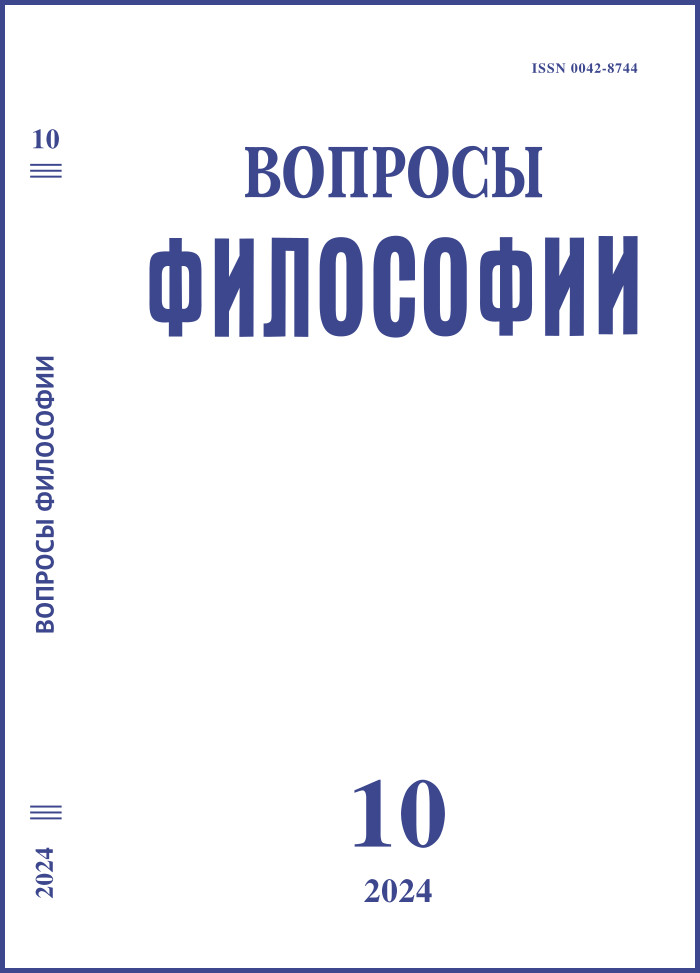Modernity Named after Immanuel Kant. On the Question of Theoretical and Practical Origins of the Project of Modernity
DOI:
https://doi.org/10.21146/0042-8744-2024-10-70-80Keywords:
modernity, reflexive modernity, the project of Modernity, Enlightenment, social philosophy, practical philosophy, Kant, HabermasAbstract
The article discusses the question of the theoretical and practical origins of the project of Modernity in the philosophy of Immanuel Kant. The theory of reflexive modernity was emerging in the second half of the 20th century. According to its positions, historical development and social transformations derive their energy from resolving emerging contradictions through an appeal to the public reason. Modernity turns out to be a fundamentally mobile and dialogical process, the maintenance of which requires a complex culture of thought and action. The author offers a critical view at the optimistic sentiments of the theorists of the end of the last century, who considered the emerging contradictions to be fundamentally solvable. The ambiguous consequences of the end of globalization, the environmental crisis and the digitalization of everyday life turned out to be among the main reasons for rethinking the general framework of theorizing about modernity as a project that must be consistently implemented. The claim to build a general theory of modernity has given way to alarmist and situational discourses, although the influence of the Western rationalist attitude remains. The article hypothesizes that one of the reasons for the crisis of the philosophical narrative about modernity was the ideologization of Enlightenment thought. Thus, the ideas of I. Kant turned into ideologemes justifying the existing world order, the beneficiaries of which are a minority. The author shows that despite the existing grounds for this, we are talking about a private interpretation of the principles of practical philosophy of the German philosopher. Actual modernity can rightfully bear the name of Immanuel Kant, but it is the critical analysis of its most widespread interpretation that can be productive for solving the key problems of the modern world

